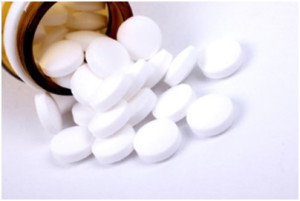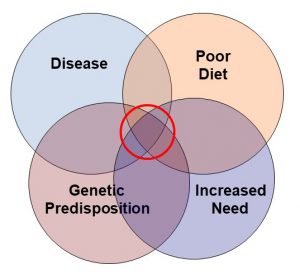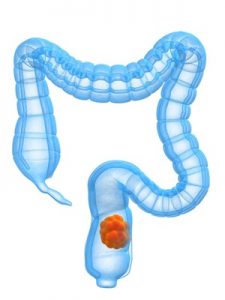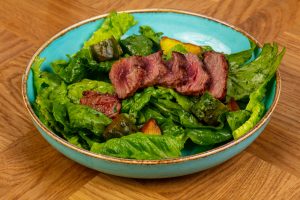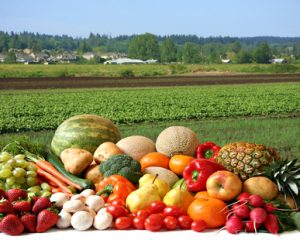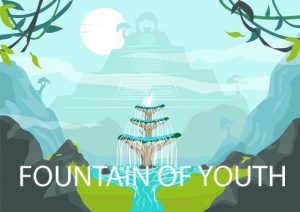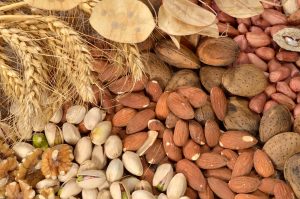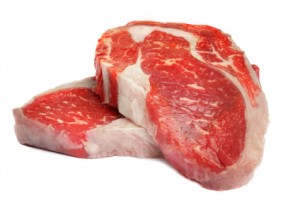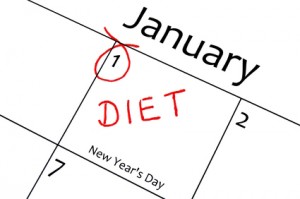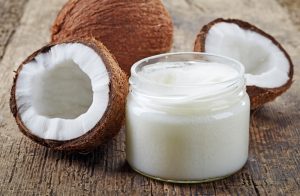How Do Sustainable Diets Compare With Meat-Based Diets?
Author: Dr. Stephen Chaney
 In a previous issue of “Health Tips From the Professor” I have discussed a sustainable diet popularly known as the planetary diet. Here is a brief synopsis of that article:
In a previous issue of “Health Tips From the Professor” I have discussed a sustainable diet popularly known as the planetary diet. Here is a brief synopsis of that article:
- The planetary diet came from an international commission called the “EAT-Lancet Commission on Healthy Diets From Sustainable Food Systems” (Bureaucrats and scientists love long names.)
- They were commissioned to recommend a diet that was both healthy and sustainable (good for the environment) through the year 2050.
- The commission reported that the methods of food production required to support our current diets:
-
- Occupy 40% of global land.
-
- Are responsible for 30% of global greenhouse gas production and 70% of freshwater use.
- They further reported that:
-
- Reaching the Paris Agreement of limiting global warming…is not possible by only decarbonizing the global energy systems (In other words, we cannot limit global warming just by switching to electric cars and stoves.).
-
- Transformation to healthy diets from sustainable food systems is essential to achieving the Paris Agreement.”
- Transformation to healthy diets from sustainable food systems is essential to achieving the Paris Agreement.”
-
- The world’s population is expected to reach 10 billion by 2050. The current system of food production is unsustainable.
- The world’s population is expected to reach 10 billion by 2050. The current system of food production is unsustainable.
- The planetary diet they recommended is a primarily plant-based diet. But it is not any plant-based diet. It limits animal foods to an extent that approaches a vegan diet.
That raises two important questions:
- Are sustainable diets like the planetary diet healthy? The answer to that question is a resounding, “Yes”. Numerous studies have shown that primarily plant-based diets are healthier than meat-based diets long term.
2) Are sustainable diets nutritionally complete? That is the question the authors of the current study (N Neufingerl and A Eilander, Nutrients, 14: 29, 2022) set out to answer.
How Was This Study Done?
 The authors searched the literature and identified 147 high-quality articles published between 2000 and January 2020 that compared the nutritional adequacy of primarily plant-based diets or vegan diets with meat-based diets.
The authors searched the literature and identified 147 high-quality articles published between 2000 and January 2020 that compared the nutritional adequacy of primarily plant-based diets or vegan diets with meat-based diets.
They excluded:
- Intervention studies because the nutritionists designing those studies assured the nutritional adequacy of the plant-based diet used in the study.
- Overly restrictive plant-based diets such as the raw food diet or macrobiotic diet.
- Primarily plant-based diets for disease prevention like the Mediterranean or DASH diets because they were too unlike the planetary diet.
- Studies with pregnant or lactating women, populations with specific diseases, and athletes.
They chose diets that measured intakes of energy (calories), protein, PUFA (polyunsaturated fats), total omega-3 fats, ALA, EPA, DHA, fiber, vitamins A, B1, B6, B12, niacin, folate, C, D, E, iron, zinc, calcium, iodine, magnesium, and phosphorous. [Note: Not all studies measured intakes of all the nutrients in this list.]
Their goal was to compare the nutritional adequacy of the diets, not the health of the diets. So, they did not report on the saturated fat, cholesterol, sugar, or percent processed food content of the diets.
How Do Sustainable Diets Compare With Meat-Based Diets?
Vegan diets:
- Tended to be inadequate in EPA, DHA, vitamins B12, D, calcium, iodine, iron, and zinc.
- Tended to have favorably high intakes of fiber, PUFA, ALA, vitamins B1, B6, C, E, folate, and magnesium.
Vegetarian diets:
- Tended to be inadequate in fiber, EPA, DHA, vitamins B12, D, E, calcium, iodine, iron, and zinc.
- Tended to have favorably high intakes of PUFA, ALA, vitamin C, folate, and magnesium.
Meat-eaters:
- Tended to be inadequate in fiber, PUFA, ALA, vitamins D, E, folate, calcium, and magnesium.
- Tended to have favorably high intakes of protein, niacin, vitamin B12, and zinc.
Other observations:
- Pesco-vegetarians (vegetarians who include fish as a major protein source) had the highest intake EPA and DHA of any of the groups studied.
- Both vegetarians and vegans had lower protein intake than meat-eaters, but their average protein intake was adequate.
Finally, there are two important reminders as you look at the data.
- The data for each nutrient was based on average intake of that nutrient in the diet group. The authors did not report the percent of people consuming that diet who had inadequate intake.
- The authors were comparing the nutritional completeness of each diet, not the effect of the diets on diseases like heart disease and diabetes. However, this comparison is important because nutritional inadequacies left untreated for a long period of time can have significant health consequences.
Are Sustainable Diets Nutritionally Complete?
 The authors concluded “…there are dietary inadequacies in any [restrictive] diet.” This is no surprise.
The authors concluded “…there are dietary inadequacies in any [restrictive] diet.” This is no surprise.
With respect to sustainable plant-based diets, the authors said, “In people following self-selected plant-based diets, especially vegan diets, intake of certain nutrients is lower compared to meat-containing diets.”
So, the answer to the question, “Are sustainable diets nutritionally complete?”, is clearly, “No. They do not provide 100% of the essential nutrients you need.”
Long-term nutritional deficiencies can have serious health implications. So, what should you do about it?
The authors made the following recommendations, “As plant-based diets are generally better for health and the environment, public health strategies should facilitate the transition to a [more] balanced diet…through consumer education, food fortification, and possible supplementation.”
Let me comment on the three recommendations they listed:
- Consumer education is a great idea, but it is usually drowned out by Big Food Inc’s advertising budgets and the misleading information provided by the Dr. Strangeloves of the world.
- Food fortification is also a useful idea. After all, it has eliminated several deficiency diseases in the past. But it is hard to fortify fruits and vegetables. And eating more highly processed plant-food products is not the way to better health – even if they are fortified. Besides, I wouldn’t hold my breath waiting for the USDA to act.
- That leaves responsible supplementation as the only viable option for anyone wanting to switch to a plant-based diet to save the planet. And if the environment is important to you, you will probably want to choose a supplement company that follows sustainable practices and is certified carbon neutral.
The Bottom Line
Primarily plant-based diets are healthier for you and healthier for the planet. But are they nutritionally complete?
A recent systemic review of 147 published studies was designed to answer that question. As you might suspect, the answer was a clear, “No”.
Vegan diets:
- Tended to be inadequate in EPA, DHA, vitamins B12, D, calcium, iodine, iron, and zinc.
Vegetarian diets:
- Tended to be inadequate in fiber, EPA, DHA, vitamins B12, D, E, calcium, iodine, iron, and zinc.
The authors concluded, “As plant-based diets are generally better for health and the environment, public health strategies should facilitate the transition to a balanced diet…through consumer education, food fortification, and possible supplementation.”
Let me comment on the three recommendations they listed:
- Consumer education is a great idea, but it is usually drowned out by Big Food Inc’s advertising budgets and the misleading information provided by the Dr. Strangeloves of the world.
- Food fortification is also a useful idea. But it is hard to fortify fruits and vegetables. And eating more highly processed plant-food products is not the way to better health – even if they are fortified.
- That leaves responsible supplementation as the only viable option for anyone wanting to switch to a plant-based diet to save the planet. And if the environment is important to you, you will probably want to choose a supplement company that follows sustainable practices and is certified carbon neutral.
For more information on this study, and the science behind my summary of the study, read the article above.
These statements have not been evaluated by the Food and Drug Administration. This information is not intended to diagnose, treat, cure, or prevent any disease.
___________________________________________________________________________
My posts and “Health Tips From the Professor” articles carefully avoid claims about any brand of supplement or manufacturer of supplements. However, I am often asked by representatives of supplement companies if they can share them with their customers.
My answer is, “Yes, as long as you share only the article without any additions or alterations. In particular, you should avoid adding any mention of your company or your company’s products. If you were to do that, you could be making what the FTC and FDA consider a “misleading health claim” that could result in legal action against you and the company you represent.
For more detail about FTC regulations for health claims, see this link.
https://www.ftc.gov/business-guidance/resources/health-products-compliance-guidance













